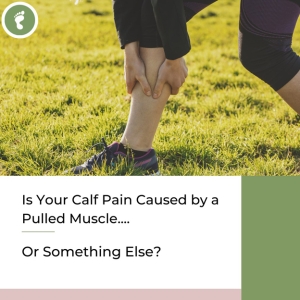Do your calves always feel achy and sore? When you try to stretch them out, does it only make the pain worse? If so, you may be suffering from calf pain. But what's causing it - a pulled muscle or something else? Keep reading to find out!
Calf pain can come on suddenly, and it can be difficult to determine the cause. If you're experiencing calf pain, it's important to figure out whether or not it's due to a pulled calf muscle. Calf pain can have many different causes. Your pain might be due to a pulled calf muscle, Achilles tendinitis, or simply from overuse.
Here are some things to look for:
- Location of the pain: A pulled calf muscle will typically result in pain that is located in the back of the lower leg, near the heel.
- Nature of the pain: The pain associated with a pulled calf muscle is usually sharp and may be accompanied by swelling.
- Severity of the pain: A pulled calf muscle can range from mild to severe, depending on the extent of the injury.
- History of injury: If you've recently experienced a trauma to the area, such as a fall or direct blow, that could be the cause of your calf pain.
If your calf pain is more mild and gradual, it's likely due to a muscle strain or overuse injury. Depending on the cause and severity of your calf pain, treatments may include:
- Rest
- Ice
- Immobilization
- Topical anti-inflammatories, such as Mod Pod Soothe
- Laser therapy
If you're experiencing sudden and severe calf pain, it's important to seek medical attention right away as it could be a sign of a more serious problem like a blood clot. Blood Clots or deep vein thrombosis (DVT) is one of the most life-threatening conditions we podiatrists may encounter.
A DVT is a blood clot that forms in a deeper vein in the body, usually the lower legs. DVT typically presents as swelling in one leg and pain in your calf. Patients typically say it feels really sore or described a cramp in the calf that won't resolve.
If you’re experiencing calf pain, it’s best to schedule an appointment with a podiatrist sooner rather than later. It may be something as simple as wearing the wrong shoes or not getting enough exercise, but it could also be a sign of a more serious condition. By catching and treating the problem early on, you can save yourself a lot of discomfort in the long run. Don’t wait – call us at 859-264-1141 or schedule an appointment online today!

